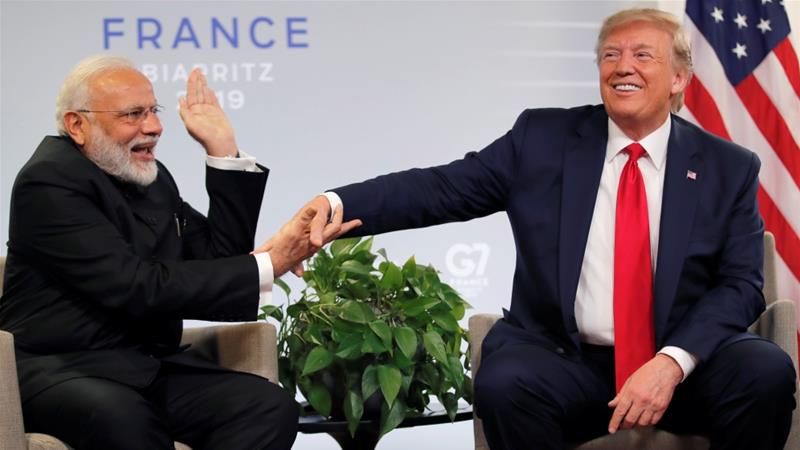India can help the US find a way to participate in reforming and strengthening international health organizations.
The United States and India are the world’s greatest democracies by virtue of our sizes, the complementary nature of our economies, and especially the alignment of our strategic interests. Both countries need to prevent China from becoming an authoritarian hegemon, fight terrorism from all sources, and defend the individual rights of our citizens against all comers. If the US and India cannot cooperate to provide international leadership in a time of crisis, then democracy will cede leadership to authoritarianism—a model most vividly exemplified in today’s world by China. US and India must rise to this challenge of leadership during this time of the Covid-19 crisis and beyond.
Slogans such as “America First” and even “Swadeshi” are inadequate to our present situation. Unfortunately, on both sides there is the danger of retreat from strategic thinking to sloganeering and a narrow focus on immediate self-interest.
In the midst of the present crisis, President Donald Trump called Prime Minister Narendra Modi to ask for the release of Trump’s beloved hydroxychloroquine. Modi rightly replied not only affirmatively to the request but also with a broader vision of what US-India cooperation should look like. The White House indicated general agreement. However, it will take action on both sides to turn rhetoric into reality.
There are immediate practical steps that the US and India should take to meet the present pandemic and the next—for there surely will be a next. We must not be lulled into thinking that if we can just get by the present crisis everything will be fine and we can return to “normal”.
The United States and India constitute two of the world’s greatest repositories of bio-medical talent and the information technology resources to take advantage of this talent. This talent and these resources can be focused through strong public/private partnerships on vaccine and medicinal research and development. The US, with the involvement of many Indian American scientists, has long been a fountain of innovation in this field, while India is ready to emerge from an over-reliance on generic drug production. The immediate requirements are for a Covid-19 vaccine, accurate tests, and effective medicines. But the US and India can go far beyond these crash projects to take advantage of the complementary nature of our bio-medical industries.
Trump’s plea on chloroquine as well as India’s shortage of chemical precursors for drug manufacturing show the need for actions to secure and enhance supply chains between the two countries. Economic engagement—trade and investment—between India and the US is not a bad thing, rather the fount of solutions that will promote mutual prosperity. We must not allow outmoded concepts of import substitution to handicap the use of comparative advantage and trade to produce inclusive growth in the field of healthcare.
India can help the US find a productive way to participate in reforming and strengthening international health organizations. In their call, Modi evidently raised the question of the WHO. Trump is not going to abandon the antipathy that he and his supporters bear toward multilateral organizations. However, Modi and India have a better understanding why it is useful to have international organizations to promote the flow of timely information and action. This information and action are fundamental not only in regard to Covid-19 but also Ebola, SARS, MERS and new viruses that will carry no passports, as well as more conventional diseases. The US and India together will have greater ability to lead in international health organizations.
In times of crisis, the US and India working as partners can provide stronger democratic leadership than either working alone. More crises will follow. They may well be more serious than Covid-19. Disasters brought on by climate change or nuclear incidents are obvious candidates for prevention as well as amelioration. Our common strategic interests are fundamental. They should leverage democratic US-India leadership in pandemics and across the board.
Raymond E. Vickery, Jr. is a leading expert on US-India relations. Currently a Senior Associate at the Center for Strategic and International Studies and a Senior Advisor to the Albright Stonebridge Group, he was Assistant Secretary of Commerce in the Clinton Administration. A published author, Mr Vickery has also served as a Global Fellow and a Public Policy Scholar at the Woodrow Wilson International Center and is a retired partner at the international law firm Hogan Lovells. He is a Founding Director of the US-India Friendship Council.
- Advertisement -

